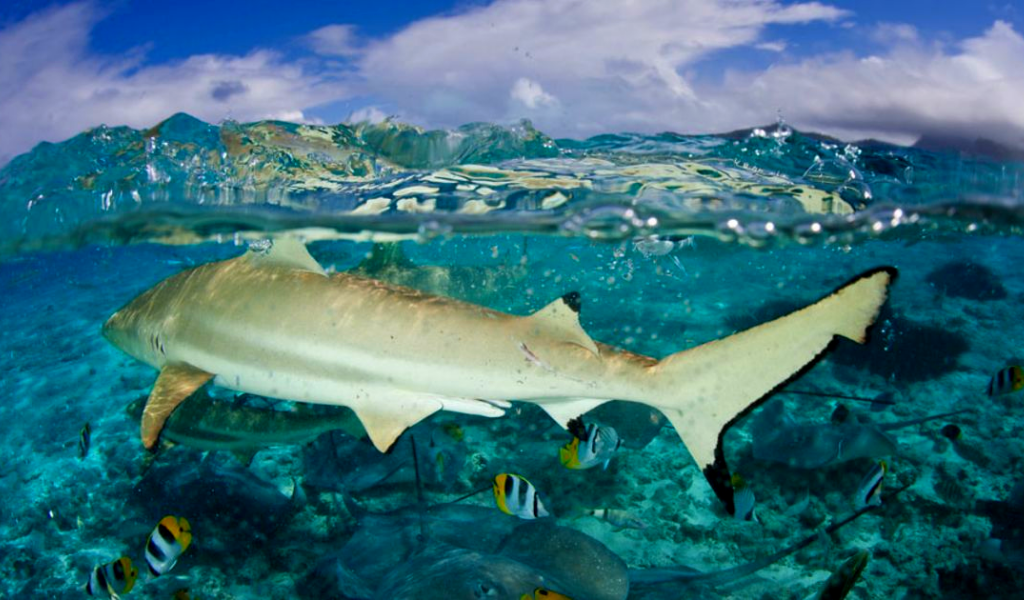
Update on Perilous State of World Shark Populations; Where Does Shark Species Found Locally Stand at?
Established in 1964, the International Union for Conservation of Nature’s Red List of Threatened Species has come to become the most comprehensive information source on the global extinction risk status of animal, fungus and plant species. It is far more than a list of species and their statuses; it is a powerful tool to inform and catalyze action for biodiversity conservation and policy change, critical to protecting the natural resources we need to survive. The list provides information on the range, population size, habitat and ecology, use and/or trade, threats, and conservation actions that will help inform necessary conservation decisions.
"Vulnerable" Blacktip Reef Shark (Photo: Scuba Girls)
Their latest update on the status of world shark populations highlights extinction threats to 316 species of sharks and other chondrichthyans (sharks, rays, skates, and chimaeras), as a direct consequence of overharvesting for their meat, fins, teeth and oil.
"Vulnerable" Spinner Sharks (Photo: Chukyky)
Out of these which are threatened with global extinction include of several sharks’ species commonly found in the Maldives. The new update re-categorizes Whitetip Reef Shark, Blacktip Reef Shark and Spinner Sharks from ‘Near Threatened’ (species close to the threatened thresholds or that would be threatened without ongoing conservation measures) to ‘Vulnerable’ (species threatened with global extinction) and Grey Reef Shark from ‘Near Threatened’ to ‘Endangered’.
"Endangered" Grey Reef Shark (Photo: Ayada Maldives)
At this point, conservation interventions are a must to prevent the population decrease. Thus, this is a call for action! There is no requirement that one must require some expertise. So here is a list of some really easy things any of us can do;
·Educating yourself on endangered species in your area
The first step to protecting endangered species is to know what is endangered and why.
·Keeping an eye out for sharks
No, we do not mean to keep an eye out in case you see one but rather keep an eye out for them like you might for a friend; in the sense, when we see sharks in trouble, doing everything you can to help them.
·Do not use shark products, including its meat
By boycotting shark products, you will reduce market demand, causing those who kill sharks to make these products, stop.
·Making smart choices when it comes to seafood
Being sure that the seafood you purchase and consume comes from sustainable methods effectively avoiding bycatch of any sharks’ species.
·Environmental friendliness
Apart from take pledge against single-use plastic products, actively partaking in coastal cleanup events.
·Donating to conservation initiatives which helps sharks
Making a direct impact on the growth and development of conservation programs.
"Vlunerable" Whitetip Reef Shark (Photo: Ayada maldives)
Many people have a negative opinion of sharks because of the way these animals have been portrayed in popular culture, but, humans are actually much more of a threat to sharks than these creatures have ever been to us!
(Cover: scubadiving.com)